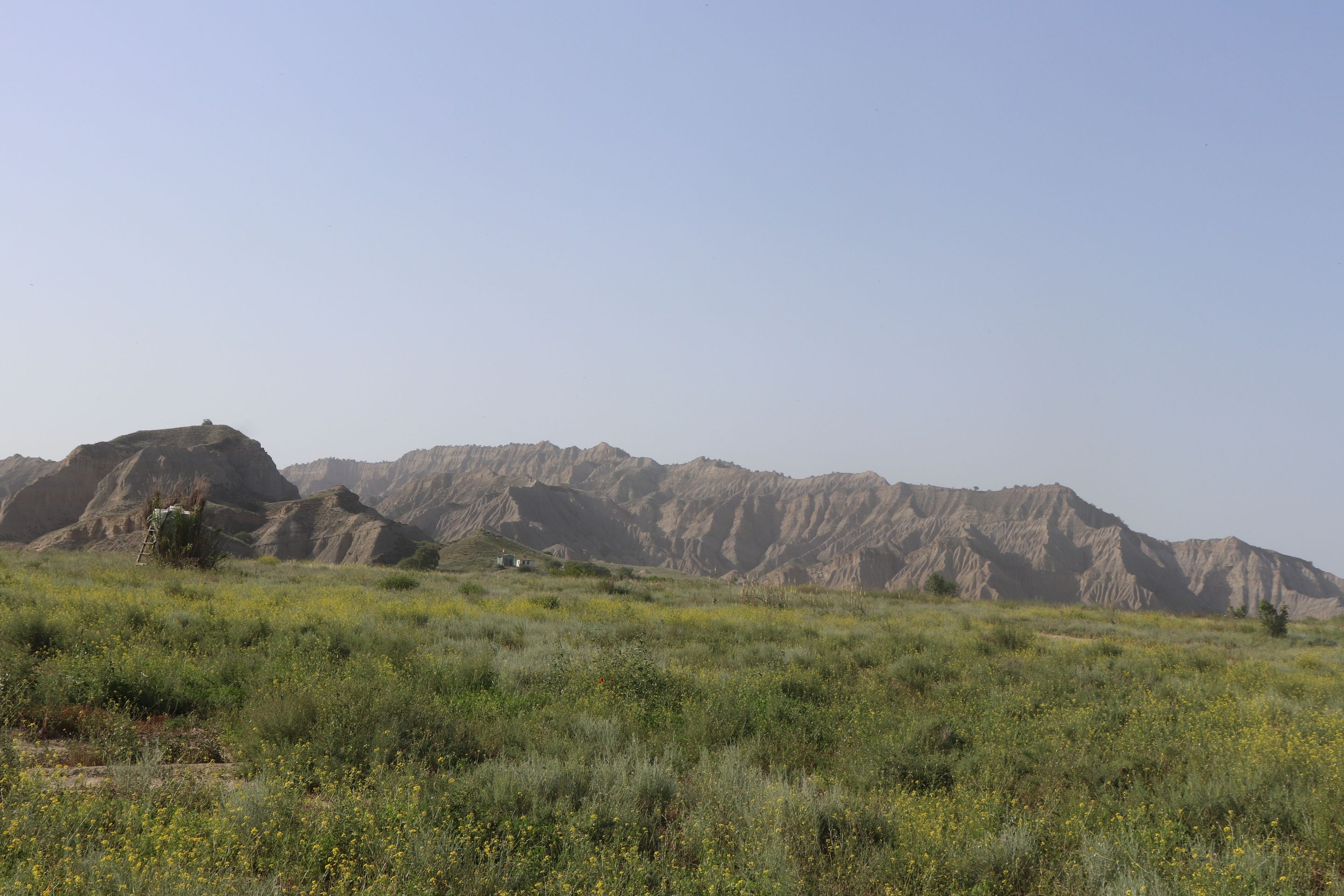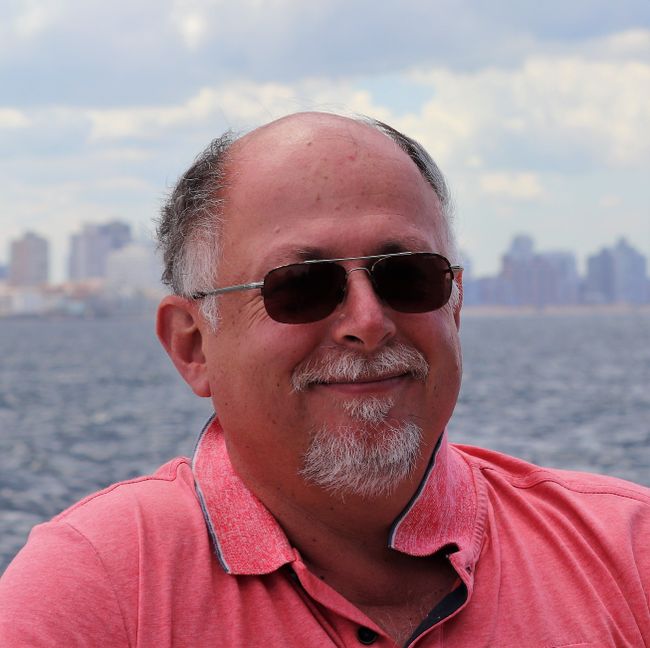
Wolfgangs Spezialreisen - Georgien2024
vakantio.de/lateinamerika_ost_west
From Paraguay to Argentina
Verëffentlecht: 13.10.2018
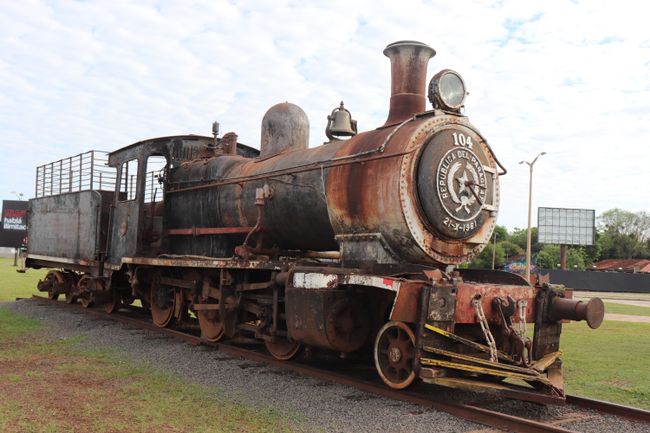
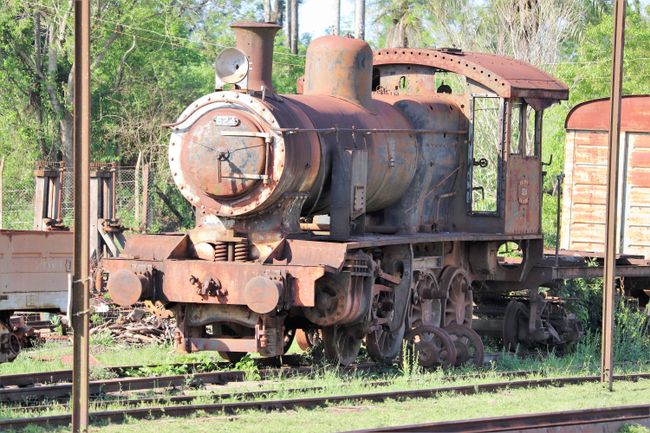
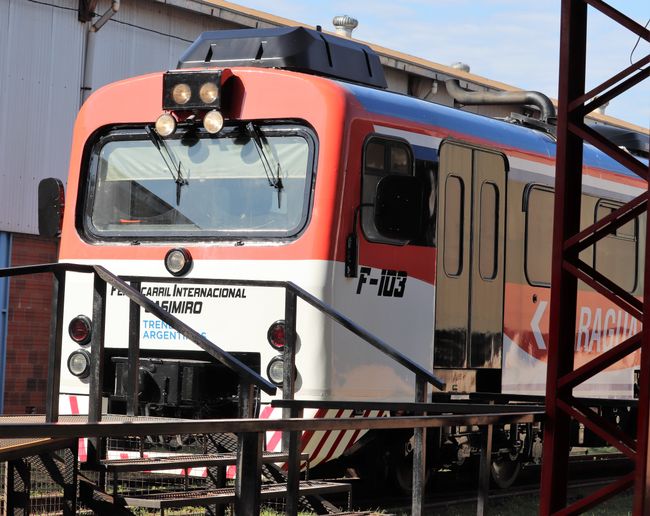
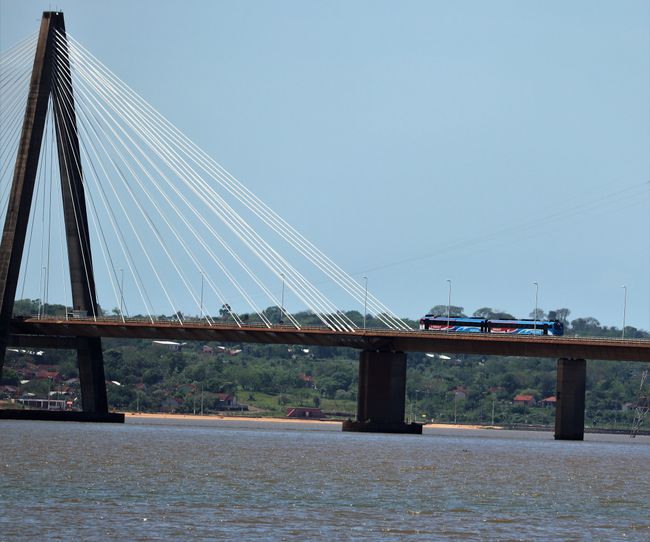
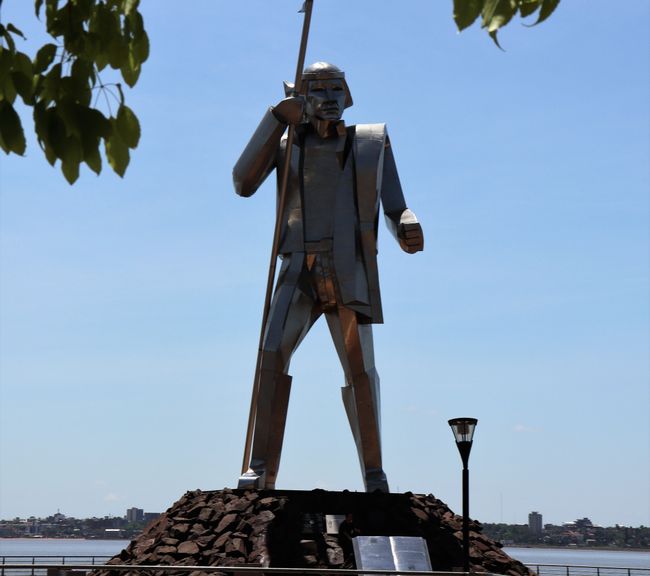
Abonnéiert Iech op Newsletter
I'm only now getting around to posting again because I've been constantly on the move since then - yes, even at night on the overnight bus, but I'll get to that later. Findings from Paraguay's once proud railway - wonderfully rusty old steam locomotives: one is near my hotel in Encaranación and I almost missed it. The train station building is freshly renovated, a brick building with a cast iron waiting hall, discovered on the last evening in darkness, photographed before departure in the morning. The second relics are at the train station by the border bridge.
Once again, the challenge is to get rid of the currency of the country I'm leaving and still remain able to pay. This time, I managed to spend down my money to 2000 Guarani (equivalent to 23 cents) perfectly with a taxi ride and train ticket. The train departed on time at 9 o'clock and ran regularly every half an hour, contrary to expectations. There was a press release stating that train service had been suspended on Sundays due to lack of demand. That's true, but only on Sundays. The entire route is 8 km across the wide Paraná river. The border crossing with the train ride, passport control, and thorough examination of my luggage on the Argentine side took 20 minutes. The reason behind this is the easy availability of drugs in Paraguay, as I had read on the website of the Federal Foreign Office before. Relieved to have all of the stamps in my passport and delighted with the smooth process, the railway finds, and yes - perfect summer weather with a blue sky - matching the Argentine flag's light blue and white colors - I set off with the problems: no tengo dinero - cassa blanca - no plata no taxi. Walking along the promenade at the beach became a bit sweaty at 30 degrees Celsius. Finally, I found an ATM on one of the busier streets - no plata, says one of the locals leaving the restroom - right - Argentina is having trouble with the IMF and so on - there is a shortage of cash. One kilometer further, I finally succeeded - but I could only withdraw 2000 Pesos, which is not even 60 euros. The euro is very strong compared to the peso: a lunch in an empty restaurant on the beach - equivalent to 6.30 euros. No kidding - a huge salad campo with 2 cervezas - jou! The place was empty for only a few minutes, then numerous families and a huge school class came - or several. I first lay down in the shade in a park - oh no, mosquitoes.
How do I continue? Just before I almost took a hotel to recover from the stress, I come across a kind of travel agency where there are bus tickets - I had already considered flying to Buenos Aires or straight to Montevideo. The friendly people - of German descent, as it turned out - were very helpful. I had an overnight ticket to Rosario, which is at the same latitude as Montevideo and not far from Buenos Aires - perfect. I could also get cash and had a nice conversation with the father and daughter who had never been to Europe before. The father spoke decent German, even though he was in the 3rd generation in Argentina, and the daughter spoke English. It turned into a nice conversation.
Posadas, the border city, is very modern with high-rise buildings, but otherwise rather unremarkable. Southern flair with gastronomy on the waterfront promenade, but no interesting photo motifs, except for a stainless steel artwork by a Guarani artist, named after him: Andresito - the artist's name is Andrés Guacarurí. The figure is oversized and clearly visible from a distance. Our Johannes Paul II, the Ratzinger Pope, has also received a figure, but much smaller. Apparently, he was there once.
Abonnéiert Iech op Newsletter
Äntwert
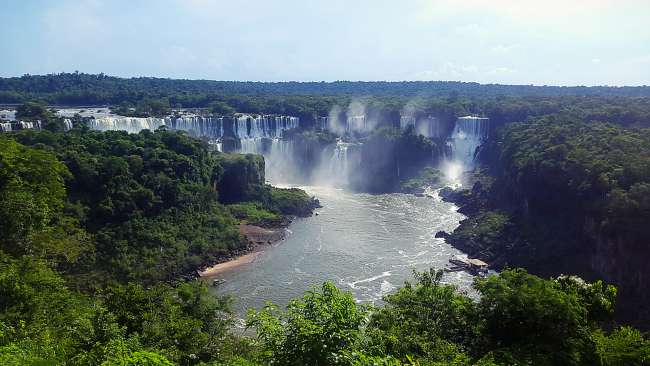
Reesberichter Argentinien
